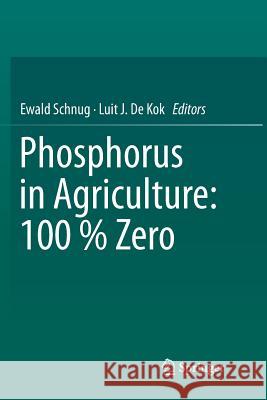Phosphorus in Agriculture: 100 % Zero » książka
topmenu
Phosphorus in Agriculture: 100 % Zero
ISBN-13: 9789402413946 / Angielski / Miękka / 2018 / 353 str.
Kategorie:
Kategorie BISAC:
Wydawca:
Springer
Język:
Angielski
ISBN-13:
9789402413946
Rok wydania:
2018
Wydanie:
Softcover Repri
Ilość stron:
353
Waga:
0.51 kg
Wymiary:
23.39 x 15.6 x 1.93
Oprawa:
Miękka
Wolumenów:
01
Dodatkowe informacje:
Wydanie ilustrowane











